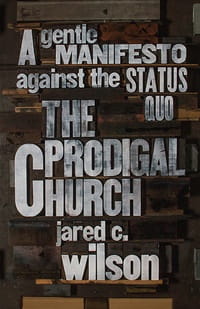6 Destructive Trends Happening in Your Church

Brothers and sisters, we ought to recover the roots of real Christianity before those who care are too few to do anything useful about it. Part of that recovery will involve identifying some of the factors that contribute to the problem. Some of these will be difficult to consider, but we ought to consider them anyway. Some of the problems we might explore are these:
1. Pastors are increasingly hired for their management skills or rhetorical ability over and above their biblical wisdom or their meeting of the biblical qualifications for eldership.
Our shepherds are increasingly hired for their dynamic speaking or catalytic leadership rather than their commitment to and exposition of the Scriptures, and for their laboring in the increase in attendance rather than the increase of gospel proclamation.
Now, of course, none of those contrasted qualities are mutually exclusive. Pastors can be both skillful managers and biblically wise; they can be both great speakers and great students of Scripture; and they can both attract crowds and proclaim the gospel. The problem is that, while they are not mutually exclusive, the latter qualities in each contrast have lost priority and consequently have lost favor. We have not prospered theologically or spiritually when we emphasize the professionalization of the pastorate.
2. The equating of “worship” with just one creative portion of the weekly worship service.
The dilution of the understanding of worship is a direct result of the dilution of theology in the church. The applicational, topical approach to Bible understanding has the consequence of making us think (and live) in segmented ways. The music leader takes the stage to say, “We’re gonna start with a time of worship.” Is the whole service not a time of worship? Isn’t the sermon an act of worship?
Isn’t all of life meant to be an act of worship?
One reason we have struggled to develop fully devoted followers of Jesus is that we incorrectly assign our terminology (equating worship with music only) and thereby train our people to think in truncated, reductionistic ways.
3. The prevalent eisegesis in Bible study classes and small groups.
“Eisegesis” basically means “reading into the Bible.” It is the opposite of “exegesis,” the process of examining the text and “drawing out” its true meaning. Many leaders today either don’t have the spiritual gift of teaching or haven’t received adequate training, and the unfortunate result is that most of our Bible studies are rife with phrases like, “What does this text mean to you?” as opposed to, “What does this text mean?” Application supplants interpretation in the work of Bible study, so it has become less important to see what the Bible means and more important to make sure the Bible is meaningful to us.
4. The vast gulf between the work of theology and the life of the church.
We have this notion that theology is something that takes place somewhere “out there” in the seminaries or libraries while we here at home are doing the real work of the Christian faith with our church programs. In many churches, theology is seen as purely academic, the lifeless intellectual work for the nerds in the church or, worse, the Pharisees.
5. Biblical illiteracy.
Our people don’t know their Bible very well, and this is in large part the fault of a generation of wispy preaching and teaching (in the church and in the home). Connected to this factor is the church’s accommodation and assimilation of the culture’s rapid shifting from text-based knowledge to image-based knowledge. I’ll say more about that in the next chapter, but when it comes to the text itself, I suspect that a lot of the superficial faith out there results from teaching that treats the Bible like Bartlett’s Familiar Quotations. Fortune-cookie preaching will make brittle, hollow, syrupy Christians.
6. A theologically lazy and methodologically consumeristic/sensationalistic approach to the sacraments.
The rise of the “scoreboard” approach to attendance reporting, some of the extreme examples of spontaneous baptism services, the neglect of the Lord’s Supper or the abuse of it through fancifulness with the elements or lack of clear directives in presenting it—these are all the result of evangelicalism’s theological bankruptcy. We don’t think biblically about these matters, because we’re think- ing largely along the lines of “what works?” and consequently we might make a big splash with our productions but not produce much faith.
The source of all of these factors, if they may be reckoned accurate, is a fundamental misuse of the Bible by the leaders entrusted with preaching and teaching it. And the grand result of all of these factors is that as our churches get larger, our message keeps shrinking. We fill our buildings with scores and scores of people, but we’ve reduced the basic message to fit the size of an individualistic faith.

In The Prodigal Church, Jared Wilson challenges church leaders to reconsider their priorities when it comes to how they “do church” and reach people in their communities, arguing that we too often rely on loud music, flashy lights, and skinny jeans to get people in the door.
Writing with the grace and kindness of a trusted friend, Wilson encourages readers to reexamine the Bible’s teaching, not simply return to a traditional model for tradition’s sake. He then sets forth an alternative to both the attractional and the traditional models: an explicitly biblical approach that is gospel focused, grace based, and fruit oriented.
Originally published February 15, 2019.







